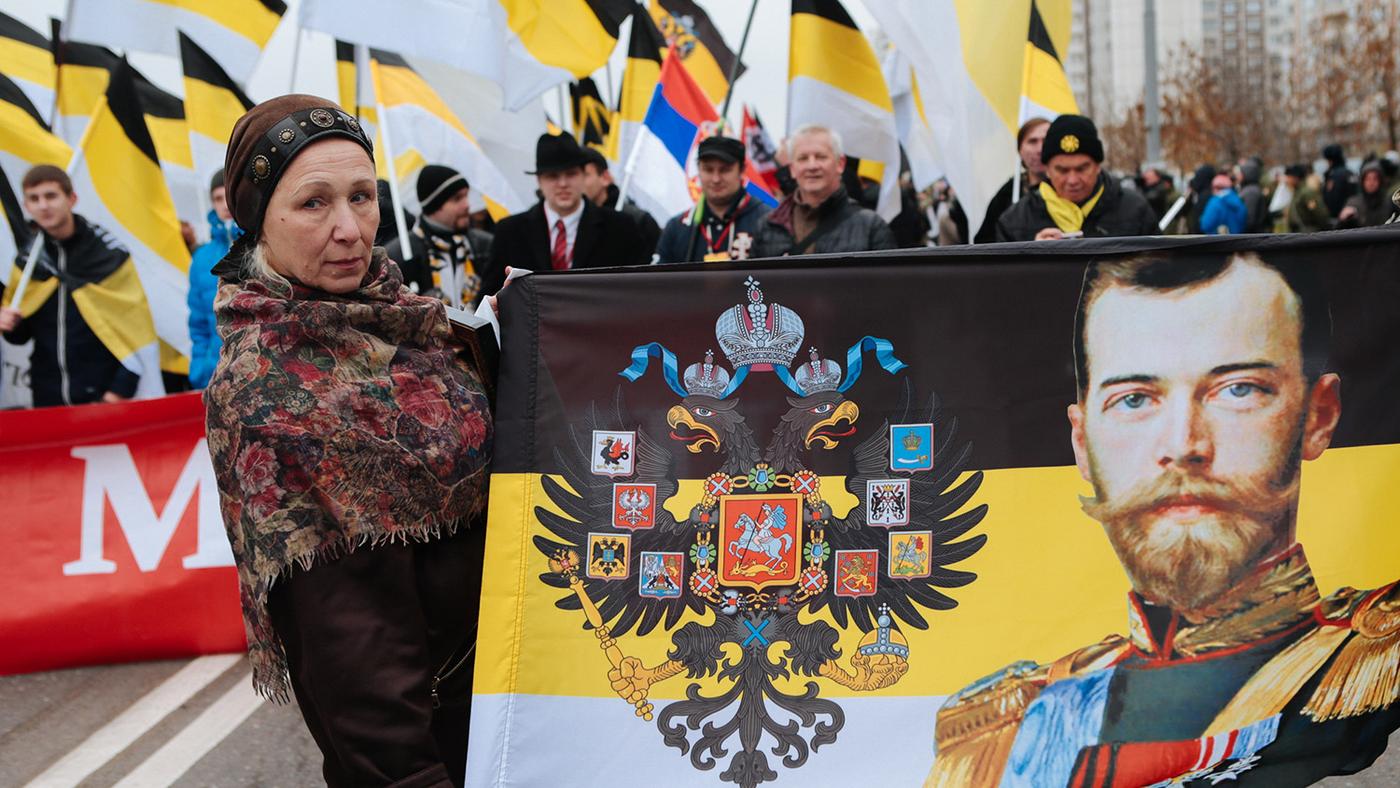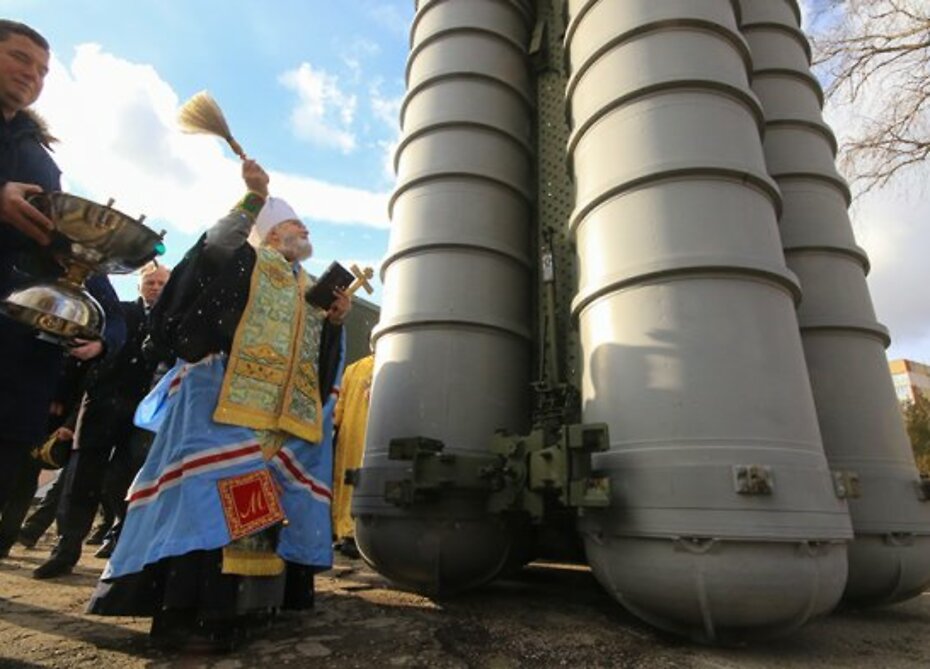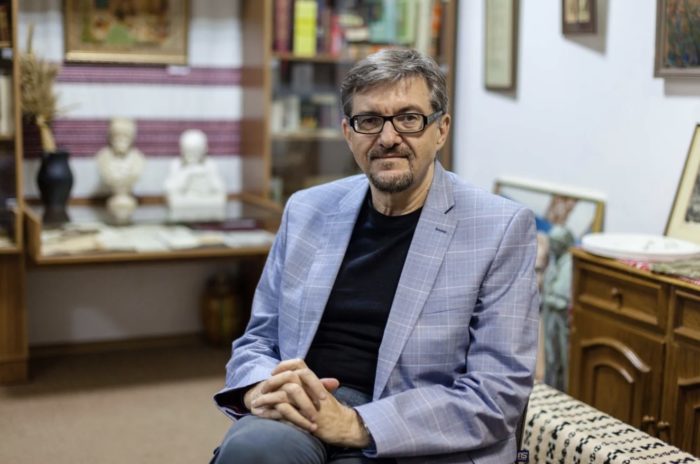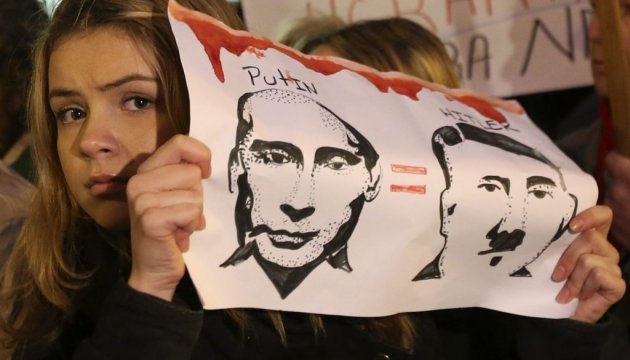A lot of ink has been spilled trying to divine Moscow’s motivations to invade Ukraine, commit innumerable war crimes, and burn the remaining bridges with the West.
Why? The pundits are scratching their heads. Why pursue such self-defeating policies? God knows, the largest landmass on our planet, the Russian Federation, doesn’t need any more territory, nor was it ever threatened by Ukraine or NATO, never mind the agents of influence the Kremlin deployed to convince itself and us of this patent lie.
In some sense, neither Putin nor his inner circle had to choose war. The criminal war of aggression chose them. Colonialism, a deeply rooted and overpowering impulse, spins the wheels of Russian history, where the actors change, but the violence remains.
We in the West must move beyond our fixation on Vladimir Putin’s motivations and confront a deeper reality. Russia was born an empire. The country’s sense of itself as a divinely anointed civilizational force, or a “third Rome,” drives aggression toward its neighbors and sustains the relationship between the Russian population and their government in the Kremlin.
When not attempting to subjugate its neighbors, the Moscow-centered polity has no coherent way of defining itself. What is Russia? What’s its purpose? What’s the unifying national idea other than conquest and plunder?
When not preparing for or fighting a war, the Russian peoples—from Buryats to Kalmyks and from Tatars to Yakuts—might find themselves questioning what truly binds them together.
How is it that Moscow, a city with one of the highest ratios of billionaires per capita in the world, continues to drain the vast riches of the land while offering nothing but delusions of “greatness” in return? That’s in a country where 66% of the rural population has no indoor plumbing and 48% uses outhouses.
It is not just the actions of a particular regime or even the Russian state as a whole; it is the essence of a culture, warped self-conceptualization steeped in neo-imperialism. The latest iteration may be called Putinism or Ruscism — Russian fascism — but the name is secondary. What endures is the pattern: unceasing violence as the manifestation of Moscow’s urge to colonize and dominate.
In every society, certain phrases, when frequently repeated by both the powerful and the powerless, become tokens of collective consciousness. In Russia, a particular vocabulary evolved, fueling genocidal narratives and framing its aggression as destiny. Consider these seven expressions—not aberrations but the organizing principles—the scaffolding of Russia’s imperial identity.

“I don’t give a damn about their tribunal.” Why prosecuting Russian propagandists is so difficult
"Russian World"
(“Русский мир,” “Russkiy mir”). Far more than a claim of cultural jurisdiction, this is a self-declared duty to intervene — and if necessary, invade — wherever Russian speakers or the Russian Orthodox Church are present. It transforms language, heritage, and religion into pretexts of imperial expansion. Under this doctrine, no neighboring state is truly sovereign. As Putin once put it, Russia’s border “doesn’t end anywhere” — a phrase that sums up the degree of violence and aggression embedded in Moscow’s self-conception.
"Brotherly nations"
(“Братские народы,” “Bratskie narody”). This is a reference to Russians and Ukrainians—a trope Moscow repeats ad nauseam. Putin devoted a 5,000-word article to the topic in 2021, signaling its utmost importance as a driving force of the coming full-scale invasion. It seems to imply kinship, but these two words carry a far more sinister weight. The phrase reveals the real violence embedded within: Ukrainians must either accept that they are, in fact, Russian or be destroyed. This conditional “oneness” underscores the impossibility of coexistence.
"Where were you for eight years?"
(“Где вы были восемь лет?,” “Gde vy byli vosem let?”) This is a rhetorical question weaponized by Moscow to deflect criticism of its aggression against Ukraine. Referring to the period from Russia’s annexation of Crimea in 2014 to the full-scale invasion in 2022, it accuses others of selective outrage while conveniently ignoring the suffering Russia itself engineered.
Just to be clear: Ukraine was not bombing itself, as the Kremlin propaganda would have you believe. The ultimate responsibility for the pain and suffering inflicted on the people of Donetsk and Luhansk oblasts rests with Moscow. By the standards of international law and basic moral reasoning, the party that launches a criminal war of aggression bears responsibility for the chain of violence it sets in motion.
“We don’t abandon our own”
(“Своих не бросаем,” “Svoikh ne brosayem”). On the surface, it reads like a noble declaration of the Kremlin’s solidarity; a commitment to your kin. In practice, Russia has weaponized this idiom to justify invasions and undermine the sovereignty of neighboring states. It asserts that wherever Russian speakers exist, Moscow has both the right and, critically, the duty to intervene, regardless of the consequences.
“We can do it again”
(“Можем повторить,” “Mozhem povtorit”). This is a boast about Russia’s role in World War II and the victorious march on Berlin, but it has now become shorthand for the country’s militaristic pride and endless cycles of violence. It frames conquest as both inevitable and righteous, masking the fragility of a system built entirely on oppression.
"Rising from knees"
(“Вставание с колен,” “Vstavanie s kolen”). A nation shaking off humiliation, reclaiming its rightful place. Yet another sleight of hand. The collapse of the Soviet Union — a moment that expanded freedom across the world and gave Russians a rare chance to build a better country.
But through the imperial lens, losing Moscow’s colonial possessions was not liberation but catastrophe. And so, the unprovoked wars, the most heinous crimes, the conquests are sold as restoration of “greatness” — a rise that is really just a fall back into militarism and repression.
“The Mysterious Russian Soul”
(“Загадочная русская душa,” “Zagadochnaya russkaya dusha”). This eternal cliché about Russia is invoked by its admirers and apologists. It suggests a profound, enigmatic essence that outsiders can neither understand nor define—a supposed spirituality, or “скрепы,” that binds Russians together. Yet this is doublespeak.
The so-called “mystery” of the Russian soul is a smokescreen, concealing the hollow core of a Frankenstein state—one that spans continents yet lacks a unifying vision. Russia isn’t a nation; it’s a prison of nations, bound not by shared values but by force and fear. At home, its people internalize subjugation, apathetic to politics, resigned to the humiliation their government inflicts day after day. Abroad, they wield that same oppression as a weapon, trapped in a cycle of perverse projection, imposing it on those who dare to resist.
It is imperative that we understand what this vocabulary reveals about the depths of Russia's imperialist mindset if we are to truly comprehend why Moscow behaves as it does. The Free World hides behind vague promises to stand with Ukraine "as long as it takes," all while failing to grasp—or willfully ignoring—the full reality of what we are facing.
Under the guise of "protecting national interests," Russia’s wars—in Chechnya, Georgia, Syria, Crimea, and now Ukraine—are all part of the same pattern. This relentless drive for domination will not stop on its own; it must be stopped. If the Free World fails to ensure Ukraine's victory, our policy missteps will only compound. Attempts to "de-escalate," "trade land for peace," or "freeze the war" by placating Moscow will backfire—just as they always have.
Editor's note. The opinions expressed in our Opinion section belong to their authors. Euromaidan Press' editorial team may or may not share them.
Submit an opinion to Euromaidan Press






